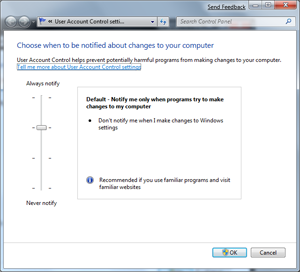Originally posted by siride
View Post
It's funny you mentioned ACLs while it's also available on Linux. It seems your Mum uses computer just to play solitairy.
 The viruses are not social problem (keep in mind I'm not talking about trojans which are just programs you run yourself), but it's a Windows design problem. There's no windows like viruses on Linux and Mac, so it clearly shows it's a design problem. Another proof of this is Windows XP viruses were working on Vista as well, so they probably "keep" design mistakes, because of some compatibility.
The viruses are not social problem (keep in mind I'm not talking about trojans which are just programs you run yourself), but it's a Windows design problem. There's no windows like viruses on Linux and Mac, so it clearly shows it's a design problem. Another proof of this is Windows XP viruses were working on Vista as well, so they probably "keep" design mistakes, because of some compatibility.
On topic: I'm really sad to see this, but not at all surprised. I can't believe Canonical talked all those years ago about how KDE would be supported as a first class citizen. No surprise. Linux seems to want to make itself irrelevant with crappily designed interfaces and dumbing down and ultimately, making Linux on the desktop a sort of second-rate OS for second-rate netbooks. Going with KDE would represent trying to remain competitive.
There's also this:
Review of the three most popular Linux desktops and community driven KDE is the winner.





Comment